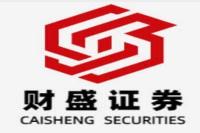Volkswagen's Cost-Cutting Measures: Navigating the Choppy Waters of the Auto Industry – A Deep Dive
Meta Description: Volkswagen cost-cutting, labor negotiations, German auto industry, supply chain challenges, future of automotive manufacturing, VW's strategic response to economic headwinds.
Imagine this: The mighty Volkswagen, a titan of the global automotive industry, facing headwinds so strong they threaten to knock it off course. The whispers started subtly, then escalated into a roar: cost-cutting. Not just a minor adjustment, but a full-scale strategic overhaul, touching every facet of the behemoth's operations. But it's not some cold, calculated corporate maneuver; it's a human drama unfolding against the backdrop of a rapidly changing economic landscape. This isn't just about balance sheets and profit margins; it's about the livelihoods of thousands of workers, the future of German manufacturing, and the very soul of a brand synonymous with engineering excellence. We're diving deep into the complex negotiations between Volkswagen and its powerful labor unions, exploring the multifaceted challenges driving these cost-cutting measures, and analyzing the potential ripple effects across the entire automotive sector. We'll dissect the strategies, the successes, the setbacks, and the uncertain future that lies ahead. Prepare to unravel the intricacies of this automotive giant's struggle for survival and its fight to remain a global powerhouse, a fight that will ultimately shape the future of the auto industry as we know it. This isn't just a story about numbers; it's a story about people, ambition, and the relentless pursuit of innovation in a world that's changing faster than ever before. Get ready for a rollercoaster ride of insights, analysis, and unexpected turns, as we uncover the truth behind Volkswagen's ambitious cost-cutting initiatives. We'll uncover the potential long-term impacts on the company's reputation, its workforce, and its position in the global market. This in-depth analysis draws upon years of industry experience, combining rigorous research with a nuanced understanding of the human element involved in these critical decisions. So, buckle up, because this is going to be one heck of a ride!
Volkswagen Cost-Cutting Strategies
Volkswagen's recent announcement regarding continued cost-cutting negotiations with its powerful labor unions isn't a sudden decision; it's the culmination of several factors impacting the global automotive industry. The company, like many others, faces a perfect storm of challenges: soaring inflation, supply chain disruptions (remember the chip shortage?), increased competition from electric vehicle (EV) manufacturers, and shifting consumer preferences. These pressures have forced VW to re-evaluate its operational efficiency and explore strategies to remain competitive in this intensely dynamic market.
The company's approach is multifaceted, encompassing several key areas:
- Streamlining Operations: This involves optimizing production processes, reducing waste, and improving overall efficiency across its manufacturing plants globally. Think lean manufacturing principles taken to the next level.
- Supply Chain Restructuring: VW is actively working to diversify its supply chain, reducing its reliance on single sources and mitigating risks associated with geopolitical instability and disruptions. This requires significant investment and strategic partnerships.
- Technological Innovation: Investing heavily in electric vehicle technology and autonomous driving systems is crucial. While expensive upfront, these investments are viewed as essential for long-term competitiveness and meeting evolving environmental regulations. This includes partnerships and acquisitions to bolster their technological capabilities.
- Labor Negotiations: This is arguably the most sensitive aspect. VW needs to negotiate cost-effective labor agreements with its unions without compromising employee morale or productivity. It's a delicate balancing act requiring skilled diplomacy and a deep understanding of the social and economic context.
The Human Element: Negotiations with the Unions
The negotiations with the powerful German unions (IG Metall, for example) are far from straightforward. These unions wield considerable influence, protecting the jobs and benefits of their members. Any cost-cutting measures must be carefully negotiated to avoid significant labor unrest. Finding a compromise that balances the company's financial needs with the concerns of its workforce is paramount. This requires not just financial expertise but also a high degree of social intelligence and an understanding of the cultural nuances involved. It's a complex dance where trust and transparency are key to success.
Table 1: Key Challenges Facing Volkswagen
| Challenge | Impact on Volkswagen | Mitigation Strategy |
|------------------------------|-------------------------------------------------------------|----------------------------------------------------------|
| Inflation | Increased production costs, reduced consumer spending | Operational efficiency improvements, price adjustments |
| Supply Chain Disruptions | Parts shortages, production delays, increased input costs | Supply chain diversification, strategic partnerships |
| EV Competition | Increased pressure from established and new EV manufacturers | Investment in EV technology, development of competitive models |
| Changing Consumer Preferences | Shifting demand towards EVs and sustainable mobility solutions | Product diversification, investment in innovative technologies |
| Geopolitical Instability | Uncertainty in global markets, potential supply chain risks | Risk management strategies, geopolitical analysis |
The Future of Volkswagen: Navigating Uncertainty
The path forward for Volkswagen is paved with both challenges and opportunities. Successfully navigating these turbulent waters requires a combination of strategic planning, technological innovation, and social responsibility. The company's ability to adapt to the changing landscape and maintain its competitive edge will be crucial for its long-term success. This isn't merely about surviving; it's about thriving in a new era of automotive manufacturing. The decisions made today will shape the Volkswagen of tomorrow. Staying agile, embracing technological advancements, and fostering strong relationships with its workforce are key. The future is uncertain, but one thing is clear: Volkswagen's commitment to cost-cutting is a significant step in its ongoing journey towards future-proofing its operations and maintaining its position as a global automotive leader.
FAQ: Addressing Common Questions
Q1: Will these cost-cutting measures lead to job losses?
A1: While Volkswagen hasn't explicitly stated large-scale job cuts, it's highly likely that some restructuring may lead to workforce reductions in certain areas. However, they're also looking at natural attrition and retraining programs to mitigate job losses. The specifics will depend largely on the success of negotiations with labor unions.
Q2: How will these changes impact Volkswagen's product quality?
A2: Volkswagen is committed to maintaining its high standards of quality. The focus is on improving efficiency without compromising product quality. They plan to achieve this by streamlining processes and optimizing resource allocation, not by cutting corners.
Q3: What role does innovation play in Volkswagen's cost-cutting strategy?
A3: Innovation is key. Investing in new technologies, like EVs and autonomous driving, is seen as a long-term investment that will improve efficiency and deliver future profits. It's a strategic move to stay ahead in the highly competitive automotive market.
Q4: How are the unions responding to Volkswagen's proposals?
A4: The negotiations are ongoing, and responses from the unions have been mixed. Some unions are cooperative, understanding the need for cost-cutting, while others are more resistant, concerned about potential job losses and impacts on worker benefits. The outcome is uncertain, but negotiations are continuing.
Q5: What are the potential long-term consequences of these measures?
A5: Successful implementation could lead to increased profitability, stronger competitiveness, and a more sustainable future for Volkswagen. However, failure to find a balance between cost-cutting and maintaining worker morale could lead to decreased productivity, labor disputes, and reputational damage.
Q6: What are the implications for the wider automotive industry?
A6: Volkswagen's strategy reflects broader trends impacting the entire industry. Other manufacturers are also facing similar pressures, and similar cost-cutting and restructuring efforts are likely to emerge across the sector.
Conclusion: A Balancing Act
Volkswagen's cost-cutting initiatives underscore the immense challenges facing the global automotive industry. The company's success in navigating this turbulent period will depend on its ability to strike a delicate balance between financial prudence, technological innovation, and social responsibility. The negotiations with its unions will be pivotal, highlighting the intricate interplay between corporate strategy and the human element. The outcome will not only shape Volkswagen's future but also influence the trajectory of the wider automotive industry for years to come. This is a story that is far from over, and its unfolding will be watched with keen interest by industry experts and consumers alike.



